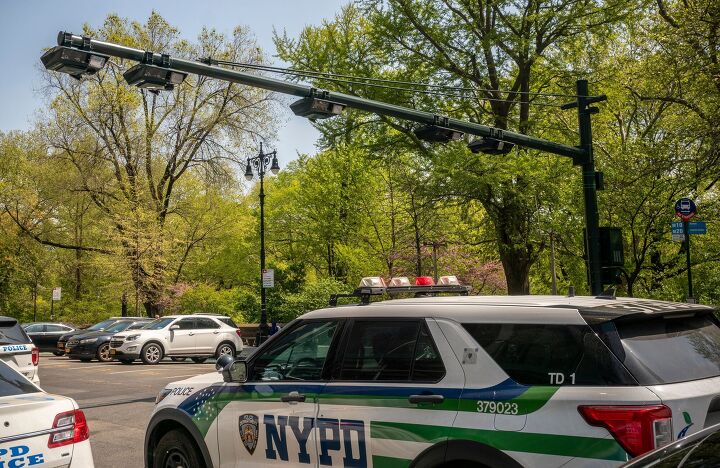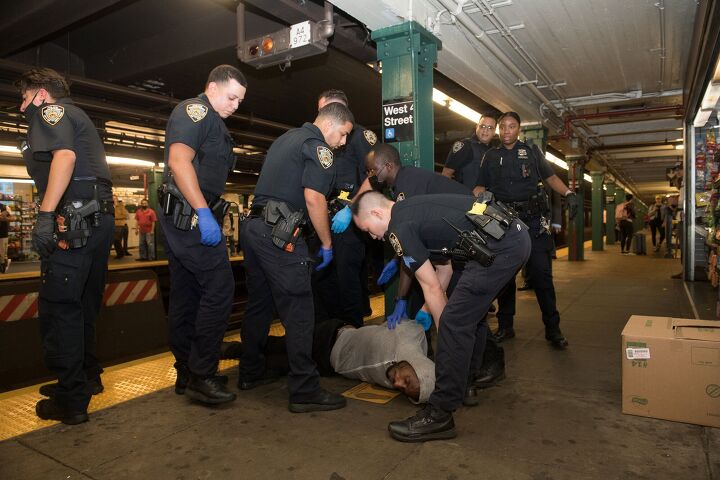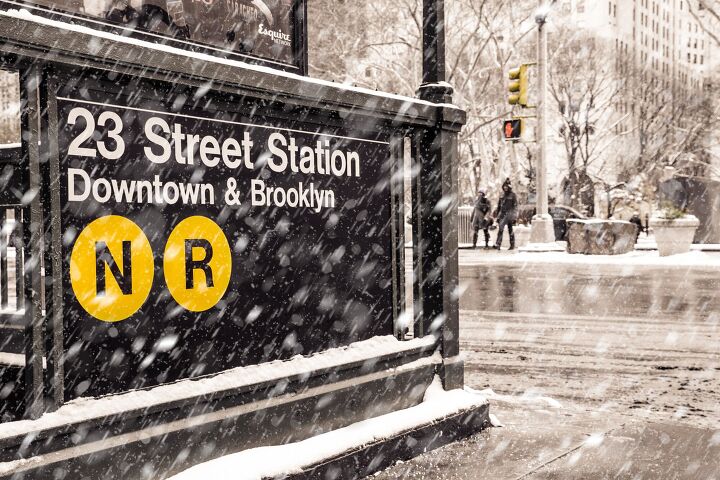An advocate of New York City’s controversial congestion pricing plan and proponent of using public transportation to reduce vehicle ownership was reportedly attacked in a Manhattan subway station last week.
“Today at around 3:30 PM, I entered the subway station at 23rd Street and 5th Avenue,” Layla Law-Gisiko stated via social media on January 5th. “At the bottom of the first flight of stairs, an individual with a shopping cart began screaming at me and spat in my hair.”
Based on her X posting, the shopping cart was then used to repeatedly batter her against a wall until she was eventually pushed down a flight of stairs. She reported having sustained minor injuries, stating that the situation was a painful and distressing experience.
The French-born Law-Gisiko started her career as a European reporter and documentary filmmaker before moving to the United States, where she gradually pivoted toward politics as she continued working in media. She is presently the president of the City Club of New York, the group which sued Gov. Kathy Hochul for delaying the implementation of congestion pricing in Manhattan after it came out as deeply unpopular ahead of the 2024 election.
“Governor Hochul’s actions blocking congestion pricing are plainly unlawful and an egregious example of executive overreach. This lawsuit upholds the law as written and seeks to ensure that all public officials act within the scope of their authority. No one, not even a governor, is above the law,” Andrew G. Celli Jr., a partner of the law firm suing on behalf of the City Club of New York, stated over the summer.
But the relevant legislation had been blocked for years and only made it through after it was baked into the 2019 New York State Budget with massive support from Manhattan Transit Authority (MTA) and numerous NGOs hoping to reduce vehicle ownership in America. However, the issue remained contentious and has been getting pushback from local residents and neighboring states — many of whom have argued that NYC leadership has already done everything in its power to make driving as inconvenient as possible by increasing tolls and reducing lanes.

The latest rebuttal to congestion pricing has been arguments that the city’s public transportation (which stands to gain the most from the new fees) is lacking in terms of reliability and safety.
But MTA leadership, in addition to city leadership and other groups advocating for congestion pricing, have argued that the NYC subway system has actually grown safer in 2024. There is some truth to that, too. Earlier this year, the city government reported that the subway had the lowest daily crime rate in 14 years and the third lowest crime since the NYPD began collecting data 28 years ago.
But that information comes with a few caveats. Data collected during the pandemic isn’t included (presumably because overall ridership declined massively) and the rate is an aggregate of all forms of crime. While petty theft and property crimes have reportedly declined, violent crimes are actually up by 55 percent since 2019. If we focus exclusively on homicides, those are up by 233 percent within the same 2019-2024 period.
Opponents of Manhattan’s new congestion charging scheme, which was officially activated at the start of this month, have used the attack against Layla Law-Gisiko as evidence that the concept is an abject failure — noting that the attack took place within the city’s new “Congestion Relief Zone.”
While your author opposes any form of congestion taxes or automated traffic enforcement (here comes the editorializing), it’s hard to support claims that the assault was the direct result of the new traffic cameras and fines being implemented. For starters, the program has only been active for a couple of weeks and the reported increases in violent crimes came before it went online. Any serious New Yorker will likewise tell you that random acts of violence are not something that sprung up overnight. I was once accosted by a hammer-wielding gentleman wearing a heavy winter coat (but no pants) in August. The incident took place above ground in broad daylight almost 10 years ago.
The point I’m trying to make here is that the likely reality of subway violence is that it’s the direct result of social and economic issues affecting the city at large — rather than being indicative that the the latest road fees are failing. But the attack does provide opponents with an opportunity to highlight previous safety concerns being one reason not to try and force more people to ride the subway.
At any rate, the situation with Layla Law-Gisiko certainly is bad optics for the congestion charging program and may even sway her in terms of future policy decisions via New York’s 75th State Assembly district. But it seems unlikely. The City Club released a statement praising Manhattan’s congestion pricing going into effect just hours after she was attacked and the document included Law-Gisiko’s signature. The issue is likewise coming down hard along party lines, so Law-Gisiko changing her opinion would presumably mean becoming extremely unpopular with her coworkers and political allies.
Meanwhile, the NYPD have said that her suspected assailant was apprehended at the station and charged with assault and harassment. He was released on an appearance ticket shortly thereafter. Police have since announced they would be further increasing their presence on NYC subways. According to the NYPD Commissioner, this is being done to “to address the perception of public safety” because the police force’s official position is that crime has gone down — something we already know does not apply to homicide or other forms of violent crime.

[Image: Little Vignettes Photo/Shutterstock; rblfmr/Shutterstock; Nick Starichenko/Shutterstock]
Become a TTAC insider. Get the latest news, features, TTAC takes, and everything else that gets to the truth about cars first by subscribing to our newsletter.
Source: The Truth About Cars


